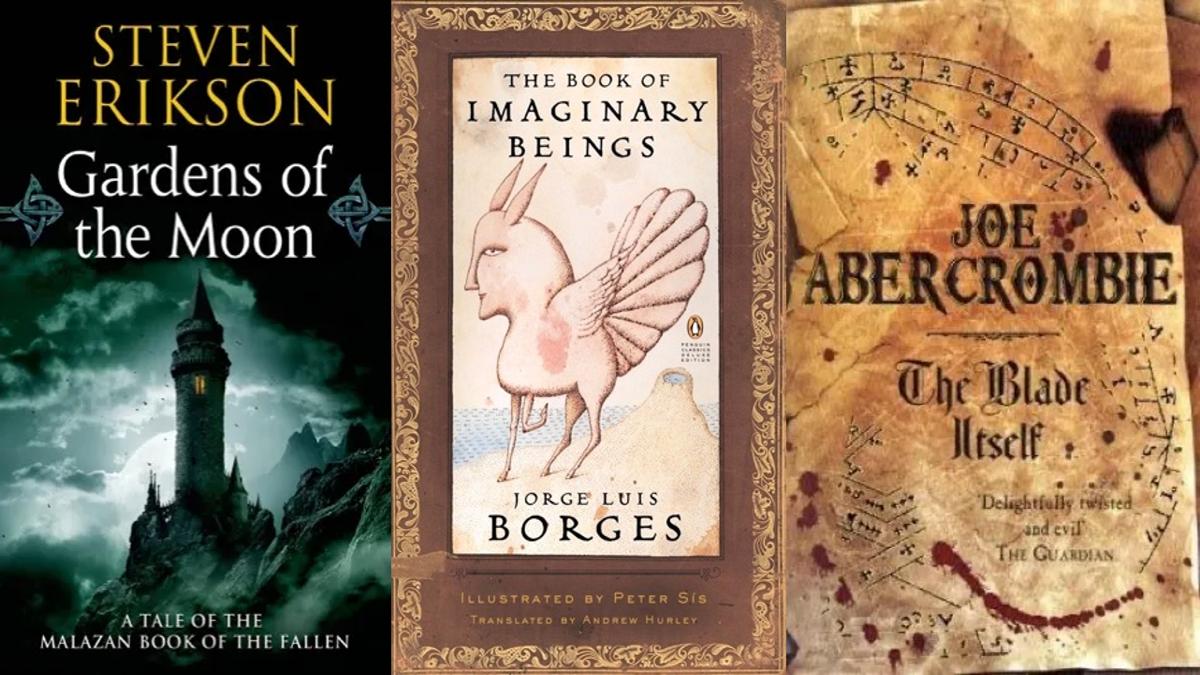
Got a thing for morally ambiguous fantasy? Mythical monsters? Henry Cavill’s lats? You’re not alone. The Witcher appeals to all kinds! While Cavill may have departed from The Witcher series and the fourth game still doesn’t have a release date, you can still get your Geralt of Rivia fix in other ways. Assuming you’ve read through Andrzej Sapkowski’s The Witcher books, here’s a smattering of novels that will fill the kikimore sized hole in your heart. These are 10 fantasy books for fans of The Witcher – whether you’re in it for the beasts or back muscles, there’s something here for you.
The Blade Itself

The first of Joe Abercrombie’s First Law series, The Blade Itself is chaotic neutral fantasy at its finest. Set in a rat-race kingdom, the plot revolves around a sordid band of adventurers all trying to get ahead. There’s Logen Ninefingers, a barbarian who’s made more enemies than he can count on both hands. There’s Captain Jezal dan Luthar, a nobleman who enjoys stabbing people in the back almost as much as he loves stabbing them in the face. And last and least there’s Inquisitor Glokta, a fallen from grace war hero turned torturer extraordinaire. What do these three have in common besides a narcissistic streak? They’ve all been convinced to undertake a quest by the manipulative wizard Bayaz. It is to rescue the kingdom? That’s how Bayaz frames it at first, but really it all boils down to the oldest, darkest, and most primal motivator of all: petty revenge.
The Poppy War

Does The Witcher‘s use of morally questionable training methods to turn children into killing machines tickle your fancy? R.F. Kuang’s The Poppy War is the novel you need. Taking place in a bloody world inspired by 20th century China, the plot centers around Rin – a war orphan with zero prospects. Well, there is one – but it’s a long shot. If she can study hard enough to be accepted into her nation’s top military academy, she may just have a chance to escape poverty. When Rin’s wildest dreams come true, she quickly learns to see the Sinegard school for the nightmare it really is. Pitted against homicidal classmates, how will she cope? Like any college kid would, with hard drugs. Using hallucinatory herbs, she unlocks ancient magic hidden in her bloodline – but when you’re calling down the power of dark gods, there’s always a price to be paid. By series end, Rin and the rest of the world will be forced to cough it up.
The Gunslinger

Looking for a fantasy hero with the hardened charisma of Geralt? Stephen King’s The Gunslinger delivers. The first of King’s The Dark Tower series, the plot revolves around Roland Deschain – a character King imagined while still in his teens. A gunslinging knight errant, Roland is an effective blend of lofty ideals spurred on by brutal pragmatism. On the hunt for the mythical Dark Tower – the piece of architecture around which King’s multiverse revolves – Roland journeys across a bitter wasteland on the heels of a mysterious man in black. If Geralt of Rivia was a pistol packin’ badass with the power to take on Guanter O’Dimm, he’d be the protagonist of this novel. Honestly, I think that Roland Deschain is the one person who could give Geralt nightmares. Just listen to Roland’s mantra: “I do not kill with my gun, he who kills with his gun has forgotten the face of his father. I kill with my heart.” I wouldn’t wanna mess with a guy who repeats that to himself nightly before he falls asleep, would you?
The Name of The Wind
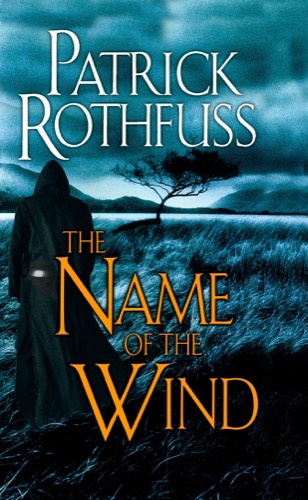
To put things in Dungeons and Dragons terms, Geralt of Rivia is a level 20 fighter with a wizard subclass. The protagonist of Patrick Rothfuss’ The Name of The Wind? He’s a level 20 bard. A famed songwriter, spell-weaver, spirit-seducer, and king-killer, the hero Kvothe rivals Geralt’s far reaching reputation. The Kingkiller Chronicles is the making of a legend, showing how young Kvothe learned to call the secret name of the air itself in order to establish mastery over magic. He’s killed dragons, hooked up with beautiful fae creatures, and (allegedly) murdered a monarch. Honestly, Geralt of Rivia needs to step up his mythic deed-doing game to compete.
Storm Front

The first of Jim Butcher’s urban fantasy series The Dresden Files, Storm Front is for fans of The Witcher‘s “monster of the week” style narratives – with a little Supernatural thrown in. Harry Dresden is a wizard working for the Chicago P.D. – stepping in when magical crime goes over the mundane heads of regular cops. When a double murder smelling of black magic has the authorities baffled, Dresden becomes determined to get to the bottom of things. In a world where Hell exists and regularly overlaps with the real world, that bottom is a long, long, long way down. After Harry’s investigation pits him against a dark wizard, he may hit bottom sooner than he thinks – and not in the kinky way.
The Gardens of The Moon

The first of the sprawling Malazan Book of The Fallen series, Steven Erikson’s The Gardens of The Moon introduces us to a world so grimdark it makes Rivia look like Candyland. The Malazan Empire feels like it was ripped straight out of the Dark Souls series – a world haunted by undead armies, creepy cults, and restless gods. A dark epic that follows a rotating cast of characters, The Gardens of The Moon is an eerily immersive read that may require a bit of note-taking to fully understand. For those who wish to be more lore-steeped than a wizard floating in a hot tub of full of tea, this series is an absolute must read. Macabre, magical, and morally ambiguous, The Malazan Empire is a place where Geralt of Rivia would feel right at home.
Berserk

Got a thing for taciturn traveling monster hunters packing big swords? Kentaro Miura quite literally wrote the book, er, manga. Possibly the finest work of dark fantasy ever penned, Berserk is a seminal series that inspired the Dark Souls games, and likely The Witcher as well. The plot follows Guts, a wandering mercenary who makes a living cracking skulls in a crapsack Medieval world. On the battlefield he’s introduced to Griffith, the charismatic leader of a warband on the rise. At least, it would have been, if Griffith hadn’t decided to sacrifice everyone to demons in order to gain godlike powers. Cursed, embittered, and on a quest for revenge, Guts cuts a swath through monsters in order to take a stab at a former comrade – who revealed himself to be the greatest monster of all. Geralt is a tough cookie, but the linebacker-sized Guts is baked different.
The Forgotten Beasts of Eld
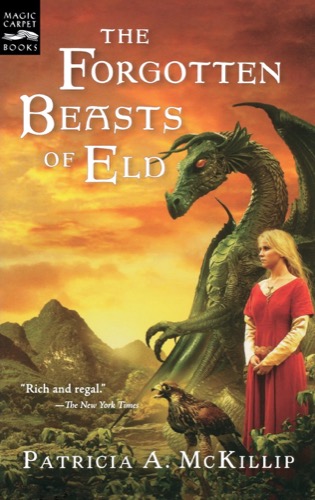
If you’re only into the The Witcher for the monsters, then The Forgotten Beasts of Eld by Patricia A. McKillip is a must read. The plot follows Sybel, a sixteen year old girl who lives in a mountain cave with a menagerie of beasts – a healthy environment for a teenager. While tending to her mythical zoo, she’s visited by a man who offers her one more creature to take care of: a human child. After raising the kid herself, the man returns to reclaim him, intending to use the royal child to spur a political rebellion in a nearby kingdom. Sybel, who lives the mountains in order to avoid this kind of human drama, is unwillingly drawn into the plot – along with her powerful army of monsters. Maybe the kingdom should have thought that one through a little more before involving her?
Assassin’s Apprentice
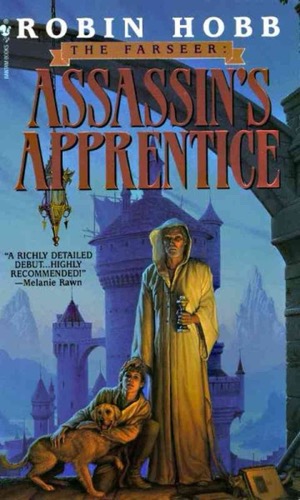
While Robin Hobb’s Assassin’s Apprentice lacks in monsters, it makes up for it in Witcher levels of moral ambiguity. The plot revolves around Fitz, the bastard son of a royal doomed to live a life in the shadows. After has budding magical talents were noticed by the powers that be, Fitz is tasked with serving his noble kin as a royal assassin – doing their dirty work so they can keep their uncalloused hands clean. A magical misfit like Geralt, Fitz’s life is one of unrewarded duty. He sacrifices everything for the good of his family, yet is never given honor, glory, or even a backwards glance. A tragic series about a tragic hero, Fitz and Geralt have a lot to commiserate about.
The Book of Imaginary Beings
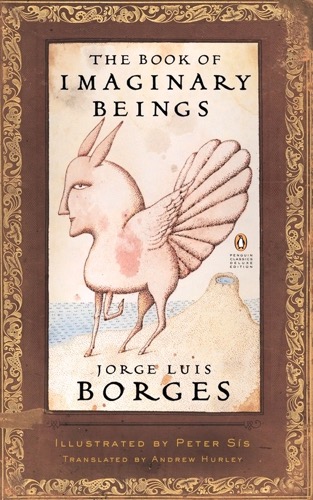
Maybe you’re not into The Witcher for the plot at all, just the monsters? Why not trim the narrative fat and get right to the best part? The Book of Imaginary Beings is a bestiary of mythical creatures from all across fantasy and world myth. Modern creatures like the Cheshire Cat and the aliens of H.G. Wells stories appear alongside dragons from ancient legends. According to the author himself, the book is best enjoyed by opening to a page at random and allowing yourself to become immersed in incredible illustrations. The Book of Imaginary Beings belongs on Geralt of Rivia’s bookshelf – maybe he could learn a thing or two from it.
Have a tip we should know? [email protected]







